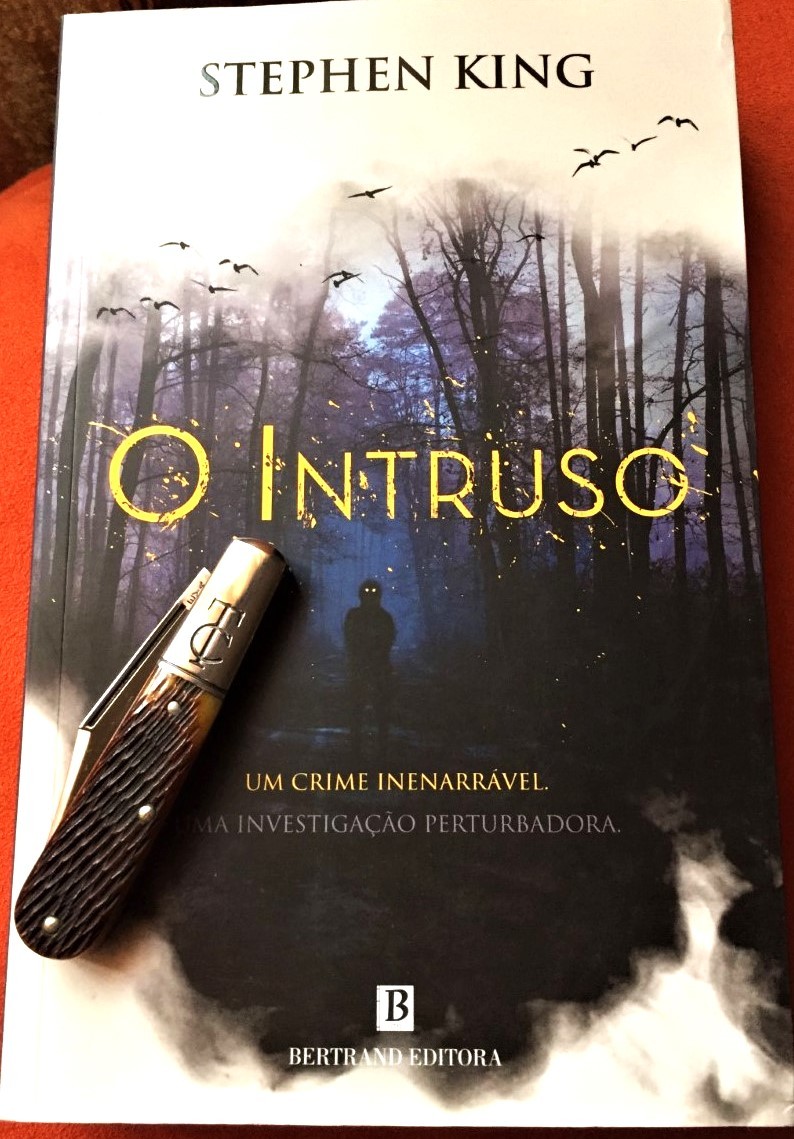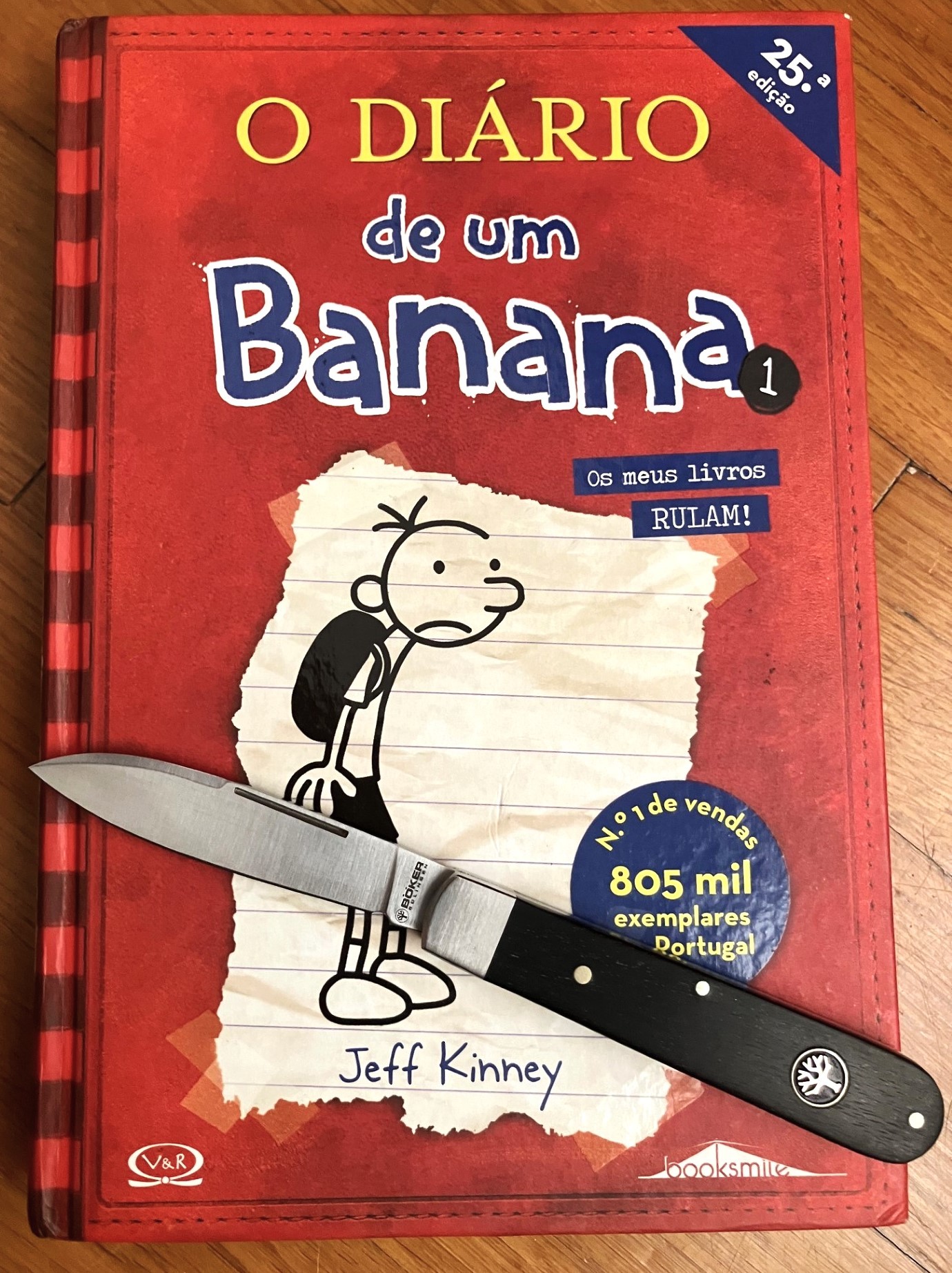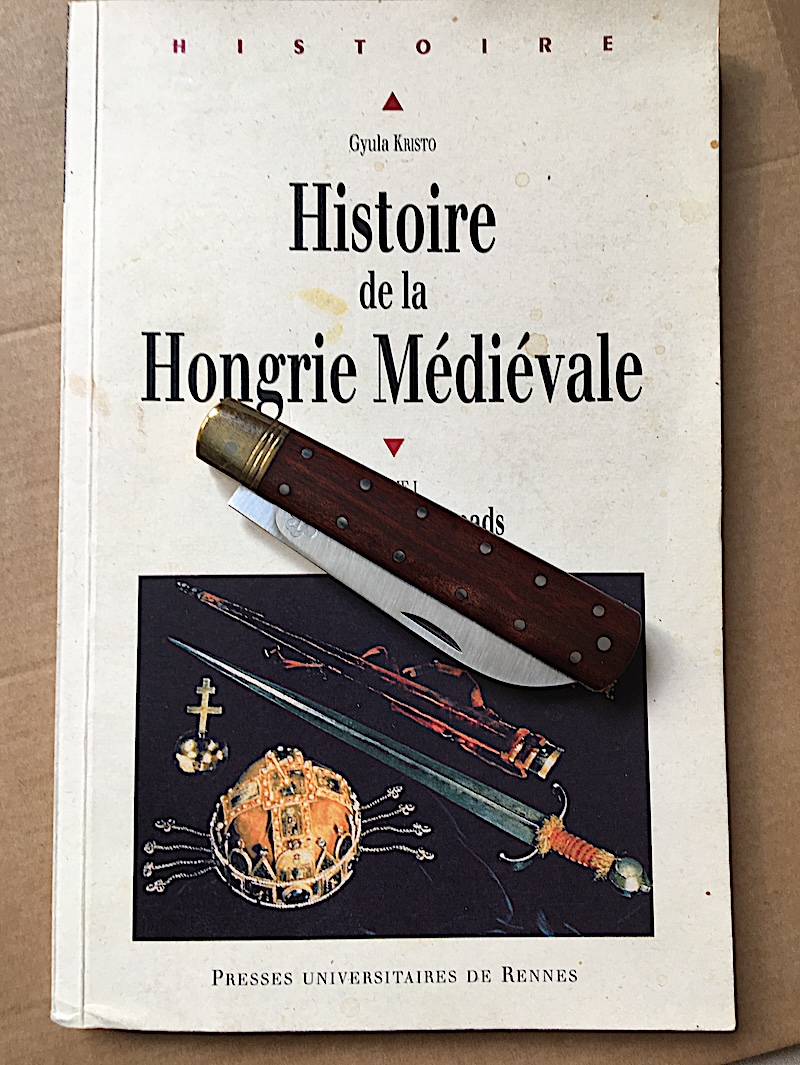You are using an out of date browser. It may not display this or other websites correctly.
You should upgrade or use an alternative browser.
You should upgrade or use an alternative browser.
Blades upon Books - Traditionals
- Thread starter WhittlinAway
- Start date
BoDiddly01
Gold Member
- Joined
- Aug 23, 2015
- Messages
- 44
Brutal book. I did the audiobook, voice actor was top notch if you havent tried that version.
The Zieg
Gold Member
- Joined
- Jan 31, 2002
- Messages
- 4,366
Indeed, he did a terrific job. I have read it twice, as well. Now I'm intrigued by the various commentaries on it, hence the Notes on Blood Meridian by Sepich. There is a map of the company's travels in Sepich, but I'm also interested in how much time is spent in each location, so I'm making a rudimentary timeline to go with the map.Brutal book. I did the audiobook, voice actor was top notch if you havent tried that version.
5K Qs
Gold Member
- Joined
- Jul 20, 2014
- Messages
- 14,010
Here's a book I read last month. The author, who is a couple of months younger than me, has been on the staff of The New Yorker for over 40 years, and has also written 10 books previous to this one. So he's an accomplished writer, but he admits that he struggled with mathematics in high school and wouldn't have passed algebra and geometry tests if he hadn't sat near students who "got" the math and had legible handwriting.
As he neared his retirement, he decided he should try to learn algebra and geometry on his own. The book is a description of his somewhat unsuccessful pursuit of that goal. The book was quite interesting to me because the author reveals some very strange (to me, at least) ideas about himself, mathematics, and his relationship to math. In addition to trying to master concepts and skills of algebra, geometry, and eventually calculus, he also did some research into topics related to the history and philosophy of mathematics. He generally does a nice job of discussing those historical and philosophical ideas, IMHO.
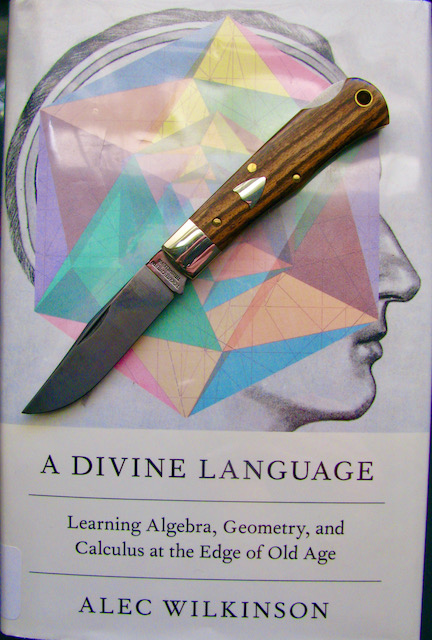
- GT
As he neared his retirement, he decided he should try to learn algebra and geometry on his own. The book is a description of his somewhat unsuccessful pursuit of that goal. The book was quite interesting to me because the author reveals some very strange (to me, at least) ideas about himself, mathematics, and his relationship to math. In addition to trying to master concepts and skills of algebra, geometry, and eventually calculus, he also did some research into topics related to the history and philosophy of mathematics. He generally does a nice job of discussing those historical and philosophical ideas, IMHO.

- GT
The Zieg
Gold Member
- Joined
- Jan 31, 2002
- Messages
- 4,366
This is a book for me!Here's a book I read last month. The author, who is a couple of months younger than me, has been on the staff of The New Yorker for over 40 years, and has also written 10 books previous to this one. So he's an accomplished writer, but he admits that he struggled with mathematics in high school and wouldn't have passed algebra and geometry tests if he hadn't sat near students who "got" the math and had legible handwriting.
As he neared his retirement, he decided he should try to learn algebra and geometry on his own. The book is a description of his somewhat unsuccessful pursuit of that goal. The book was quite interesting to me because the author reveals some very strange (to me, at least) ideas about himself, mathematics, and his relationship to math. In addition to trying to master concepts and skills of algebra, geometry, and eventually calculus, he also did some research into topics related to the history and philosophy of mathematics. He generally does a nice job of discussing those historical and philosophical ideas, IMHO.
- GT
5K Qs
Gold Member
- Joined
- Jul 20, 2014
- Messages
- 14,010
5K Qs
Gold Member
- Joined
- Jul 20, 2014
- Messages
- 14,010
I'm working on reading (usually re-reading) the Jack Reacher novels in the order in which they were published. In the past, I read them in a somewhat random order. But I happened to notice that my library had the very latest Reacher book available, so I grabbed that and read it for the first time, and will re-read later as I approach the end of my "read in order" plan.
The new novel is titled The Secret and, like several of the most recent Reacher novels, is allegedly co-authored by series originator Lee Child and his brother Andrew Child who is scheduled to take over the Reacher franchise on his own soon. The book is a "flashback" to 1992 when Reacher is still an Army MP. I tend to enjoy the several past novels that go back to Reacher's Army days. In The Secret, Reacher represents the military on an investigative task force that also includes reps from FBI, CIA, and some other agency I can't remember because the person hardly did anything until near the end of the book. They're trying to figure out who is killing a bunch of scientists who had all worked together in India in 1969.
Pretty good story; maybe a bit predictable at times. I think I've mentioned in the past that the jointly-authored novels seems to have more British terminology in them than was the case when Lee Child wrote them alone. "Hose-pipe" instead of "hose" is the one that stood out to me in this book.
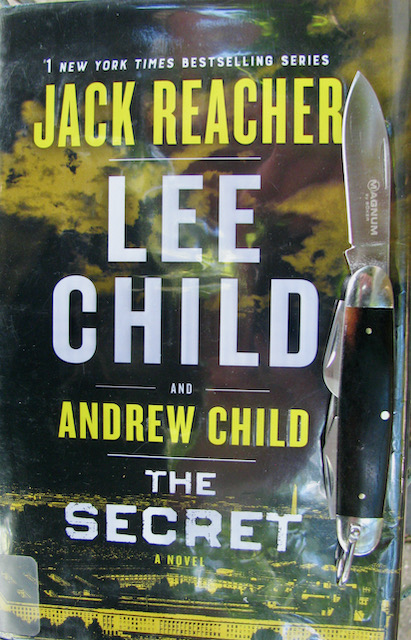
- GT
The new novel is titled The Secret and, like several of the most recent Reacher novels, is allegedly co-authored by series originator Lee Child and his brother Andrew Child who is scheduled to take over the Reacher franchise on his own soon. The book is a "flashback" to 1992 when Reacher is still an Army MP. I tend to enjoy the several past novels that go back to Reacher's Army days. In The Secret, Reacher represents the military on an investigative task force that also includes reps from FBI, CIA, and some other agency I can't remember because the person hardly did anything until near the end of the book. They're trying to figure out who is killing a bunch of scientists who had all worked together in India in 1969.
Pretty good story; maybe a bit predictable at times. I think I've mentioned in the past that the jointly-authored novels seems to have more British terminology in them than was the case when Lee Child wrote them alone. "Hose-pipe" instead of "hose" is the one that stood out to me in this book.

- GT



